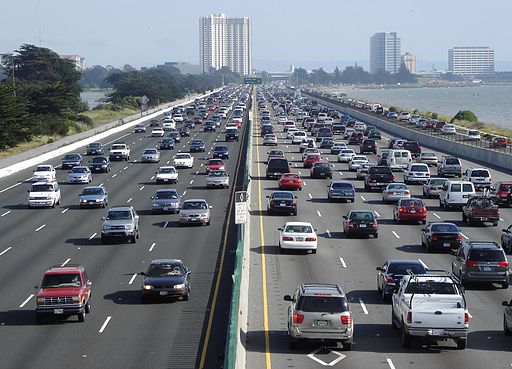 At the state and local level, communities are pressing ahead on clean transportation solutions—never mind that the Trump administration is stuck in reverse.
At the state and local level, communities are pressing ahead on clean transportation solutions—never mind that the Trump administration is stuck in reverse.
A new resource released today helps these communities turn their aspirations into action. The Toolkit for Advanced Transportation Policies details the wide range of transportation policy opportunities that state and local governments can implement to reduce pollution — thus providing cleaner, healthier air for local residents and reducing dangerous climate change while supporting economic development.
The report, by energy consulting firm MJ Bradley & Associates, was commissioned by EDF.
As EDF president Fred Krupp said today:
“Cities and states are charging ahead to a clean transportation future. This report provides a blueprint for action. It can help turn commitments into tangible reductions in harmful air pollution, which will mean healthier communities for our families.”
Clean transportation is essential for healthy air and a secure climate
The transportation sector is now America’s largest source of the pollution that causes climate change, as well as a major source of other unhealthy air pollution.
Climate pollution from the transportation sector is continuing to increase. However, new innovations offer tremendous opportunity to dramatically reduce pollution from cars and trucks.
Thoughtful transportation policy is a key way for state and local governments to seize these new opportunities — offering the potential to support smart growth, reduce congestion, improve safety, and support economic development, while at the same time protecting Americans from unhealthy pollution.
In the foreward of today’s report, Houston Mayor Sylvester Turner says:
“Cities and states have an enormous opportunity right now to support cleaner and smarter transportation networks. This toolkit is designed to help seize those opportunities and put the best technologies to work.”
Cities and states are committed to further progress
The City of Houston is just one jurisdiction focused on addressing pollution. The city has initiated an innovative, block-by-block air pollution monitoring program, using pollution sensors on its municipal fleet to document air pollution burdens from cars and trucks.
Last month, other senior city and state officials at the Global Climate Action Summit also announced existing commitments that will ensure America continues to make substantial progress toward fulfilling its Paris Agreement pledge.
This new Toolkit, which also has an interactive website, outlines dozens of concrete policies and initiatives that states and cities can use to take action, protect their residents, and make concrete progress in reducing transportation sector pollution.
The report highlights three general categories of policy options:
- Policies focused on reducing pollution
- Policies focused on electrifying the transportation sector
- Broader programmatic measures to support a cleaner transportation system
Each page details successes and policies that are already in place, including:
- Austin’s innovative program for supporting charging infrastructure for multi-unit housing
- New York State’s best practices for facilitating the permitting of new electric vehicle infrastructure
- Sacramento’s car share program
- Diesel vehicle retirement programs in place in numerous jurisdictions across the U.S.
- Bus prioritization programs in communities across the United Kingdom
Cities and states can move ahead now
The report details the extensive authority cities and states already have to put these clean transportation policies into place.
Over the last half century, state leadership has played a key role in spurring the development and deployment of clean car solutions like smog-fighting catalytic converters.
Under long-standing provisions in the Clean Air Act, California has authority to set its own vehicle pollution standards, and other states are authorized to adopt these standards. Today more than a third of U.S. new car sales are covered by the coalition of states that have committed to protective clean car standards: California, Colorado, Connecticut, Delaware, Maine, Maryland, Massachusetts, New Jersey, New York, Oregon, Pennsylvania, Rhode Island, Washington, and Vermont, plus the District of Columbia.
Even further, cities and states have broad authority to implement a wide range of policies to advance clean transportation systems. Pollution control and local transportation planning and policy are traditionally matters of state and local control.
States and cities can also take action as market participants — developing fleet management programs that save money and advance pollution reduction goals.
The time to act
An enormous range of opportunities is at hand to reduce pollution, save money, and support the transportation system of the future. Even if the Trump administration refuses to seize these opportunities, states and cities can — and should — act now.










One Comment
States need to focus on transportation such as high-speed rail. Places like Texas could utilize rails before hurricanes. Imagine how efficient it would be when temporarily relocating families farther north. It could be done in a couple days, rather than a week with buses.